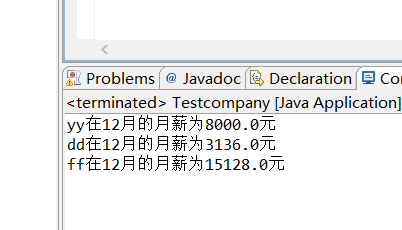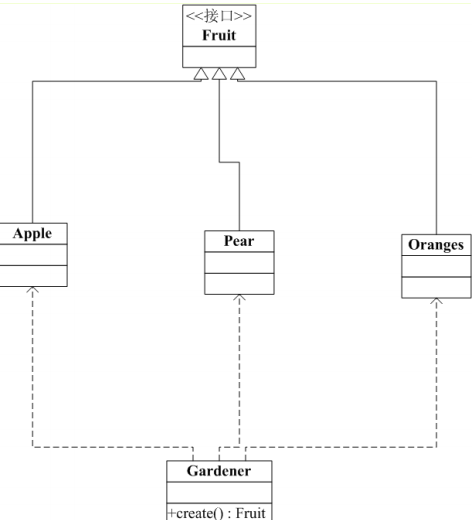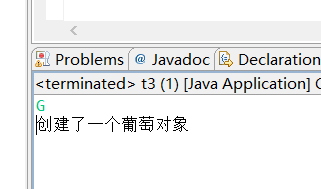课后作业
Cola公司的雇员分为以下若干类:(知识点:多态) [必做
题]
• 4.1 ColaEmployee :这是所有员工总的父类,属性:员工的
姓名,员工的生日月份。方法:getSalary(int month) 根据参数
月份来确定工资,如果该月员工过生日,则公司会额外奖励
100 元。
• 4.2 SalariedEmployee : ColaEmployee 的子类,拿固定工
资的员工。属性:月薪
课后作业
• 4.3 HourlyEmployee :ColaEmployee 的子类,按小时拿工
资的员工,每月工作超出160 小时的部分按照1.5 倍工资发
放。属性:每小时的工资、每月工作的小时数
• 4.4 SalesEmployee :ColaEmployee 的子类,销售人员,
工资由月销售额和提成率决定。属性:月销售额、提成率
• 4.5 定义一个类Company,在该类中写一个方法,调用该
方法可以打印出某月某个员工的工资数额,写一个测试类
TestCompany,在main方法,把若干各种类型的员工放在一
个ColaEmployee 数组里,并单元出数组中每个员工当月的
工资。
package zy; public class Colaemployee { protected String name; protected int month; public Colaemployee() { super(); } public Colaemployee(String name, int month) { super(); this.name = name; this.month = month; } public double getSalary(int month) { return 0; } }
package zy; public class Salariedemployee extends Colaemployee { protected double money; public Salariedemployee() { super(); } public Salariedemployee(String name, int month, double money) { super(name, month); this.money = money; } public double getSalary(int month) { if (super.month == month) { return money + 100; } else { return money; } } }
package zy; public class Hourlyemployee extends Colaemployee { protected int hourmoney; protected int daymonth; public Hourlyemployee() { super(); } public Hourlyemployee(String name, int month, int hourmoney, int daymonth) { super(name, month); this.hourmoney = hourmoney; this.daymonth = daymonth; } public double getSalary(int month) { if (super.month == month) { if (daymonth > 160) { return hourmoney * 160 + hourmoney * (daymonth - 160) * 1.5 + 100; } else { return hourmoney * daymonth + 100; } } else { if (daymonth > 160) { return hourmoney * 160 + hourmoney * (daymonth - 160) * 1.5; } else { return hourmoney * daymonth; } } } }
package zy; public class Salesemployee extends Colaemployee { protected int monthsales; protected double rate; public Salesemployee() { super(); } public Salesemployee(String name, int month, int monthsales, double rate) { super(name, month); this.monthsales = monthsales; this.rate = rate; } public double getSalary(int month) { if (super.month == month) { return monthsales * rate + 100; } else { return monthsales * rate; } } }
package zy; public class Company { public void getSalary(Colaemployee c, int month) { System.out.println(c.name + "在" + month + "月的月薪为" + c.getSalary(month) + "元"); } }
package zy; public class Testcompany { /** * @param args */ public static void main(String[] args) { // TODO Auto-generated method stub Colaemployee c1[] = { new Salariedemployee("yy", 3, 8000), new Hourlyemployee("dd",8, 16, 184), new Salesemployee("ff", 7, 7564, 2) }; for (int i = 0; i < c1.length; i++) { new Company().getSalary(c1[i], 12); } } }

• 5、利用接口实现动态的创建对象[选做题]
• 5.1 创建4个类:
• 苹果
• 香蕉
• 葡萄
• 园丁
• 5.2 在三种水果的构造方法中打印一句话.
• 以苹果类为例
• class apple
• {
• public apple()
• {
• System.out.println(―创建了一个苹果类的对象‖);
}
• }
课后作业
• 类图如下:
• 5.3 要求从控制台输入一个字符串,根据字符串的
值来判断创建三种水果中哪个类的对象

package zy; import java.util.Scanner; public interface Fruit { } class Apple implements Fruit { public Apple() { System.out.println("创建了一个苹果对象"); } } class Banana implements Fruit { public Banana() { System.out.println("创建了一个香蕉对象"); } } class Putao implements Fruit { public Putao() { System.out.println("创建了一个葡萄对象"); } } class Gardener { public Fruit create() { Fruit f = null; Scanner input = new Scanner(System.in); String name = input.next(); if (name.equals("A")) { f = new Apple(); } else if (name.equals("B")) { f = new Banana(); } else if (name.equals("G")) { f = new Putao(); } else { System.out.println("不会种"); } return f; } }
package zy; public class t3 { /** * @param args */ public static void main(String[] args) { // TODO Auto-generated method stub Gardener g = new Gardener(); g.create(); } }




